Digital space is more ecological, customisable, and sustainable
Dr. MM Kariappa started Vogue Institute of Art & Design in the year 1996, with merely 4 students, without having any financial backing or experience in the fashion industry. In the year 1999, Vogue became the first design school in the country to be affiliated to Bangalore University in offering undergraduate degree courses in Fashion and Apparel Design (BSc. FAD). In an interview with Fibre2Fashion, Kariappa shares his thoughts on metaverse and the importance of augmented reality.
Fibre2Fashion: How would you describe the journey that led to the establishment of Vogue Institute of Art & Design? As a founder, what challenges did you experience in the initial stages?
DR. M.M Kariappa:
It was during the early nineties that I could see a total void in the number of institutions offering art and design programmes in the country. I felt that aspiring fashion enthusiasts are not being able to find a suitable institution. As a result, their dreams were unfulfilled and remained as they are. So that is when I thought that there is a potential for these programmes. I could see a growing demand and passion for these courses among aspirants.
Back to wish, I had a dream and a vision. I come from a middle-class family of farmers. I hail from Coorg district in Karnataka, where the maximum number of people are in the defence forces. So, we are basically supposed to be a warrior and I was an odd man out getting into a business venture, not knowing what to do by myself. Nevertheless, I took it up as a challenge and worked towards it. With the dream of building one of the finest design institutions in the country in terms of aesthetics and design.
Well, we started off with about four students in the year 1996, in a small garage. I was a receptionist, an accountant, a counsellor, except that I had a faculty. That’s all. Otherwise, I would have done that also. 26 years ago. Well, I think it was a wonderful journey that I went through. Today we have the most beautiful campus in the country, and we have 700 to 800 students studying in various disciplines and coming from both national and international origins.We have been rated as one of the top designing colleges in the country by India Today and Outlook magazines based on the market survey.
F2F: How would you define the metaverse and how it can affect the global market?
DMK:
Metaverse is a very complex topic at the moment, but what we are really referring to is the future internet. When I look back to the day when the internet was introduced to explore information in Google, and then gradually people started using it to connect to people on social media. Fast forward to today, people are not just dependent on the internet, but they are also literally living with that. We cannot imagine living without a mobile. It is like oxygen to every human being now.
Talking of metaverse, people are able to utilise it globally and access digitally, which lets them live literally in a digital world. It allows everything to be done digitally. So, metaverse looks pretty promising as there are endless possibilities. Big brands like Nike and Gucci have already registered themselves on different virtual mediums and are selling sneakers and other products, allowing people to experience digital world based on metaverse. It is an emerging technology – virtual reality, augmented reality,cryptocurrency and the internet coming together – will attract the global market for all the major brands as well as people who want to go about doing things globally. People will take it as an extension of the physical world, and metaverse will help people experience everything in the virtual world and trade digitally.
F2F: What is your Perspective on the fashion industry’s shift towards digital fashion and the meta world?
DMK:
The metaverse is transforming the fashion industry. It has already taken the global fashion industry by storm. We never expected the situation until COVID-19 came into the picture. Nobody expected this would really happen, but things and people are getting comfortable with virtual reality with the passage of time and on a creative level. The digital fashion can really eliminate the physical limitation of what one can do. There is a limit to everything, but in the virtual world, there is no limitation at all. So metaverse can provide an endless number of opportunities to develop for designers, fashion retailers as well as consumers.
F2F: How can your institute contribute towards the trend of augmented reality? Is it possible to introduce any specialised courses?
DMK:
In India, there are not many institutions that are offering these kinds of programmes connected to fashion, but augmented reality is a blooming technology at the present time. To build the same, we will require creative design thinking and programming skills, as both work hand-in-hand. In our institute too,students can play a role in the creative design part of it as well as the concepts and designs. But in terms of implementation, it is challenging due to limited resources. It is also quite expensive for an institution like ours at the moment because we get limited fees. I do not see receiving any financial support from any end as we come under the umbrella of a university. But eventually these programmes would have to be made available to the students. Maybe in the future, the government either supports or gives permission to offer such special courses to students.
F2F: How can Indian brands and designers optimally utilise digital clothing? And how long tentatively will it take to adopt to digital clothing?
DMK:
Digital space can be defined in the fashion industry as more ecological, customisable, and sustainable. Digitally you can do anything, even Indian brands are displaying their brand stories digitally everywhere. For example, Amazon, Flipkart and similar platforms have gone digital. Now they are also working on augmented reality and virtual reality technology by introducing features where people can try the product to have real-time experience. Companies are working on it. The technology which exists in India is not of the highest level, but soon it would be upgraded.
To offer real touch and feel of a garment digitally will require a lot of investment. So, implementing this technology will be a continuous process, especially for the Indian markets. Brands should open, experiment, and adopt these changes as soon as possible because if the feel of the virtual image of products is not as realistic as it should be, it would disappoint the end user.
F2F: What changes would be required in fashion education in order to emphasise digital fashion?
DMK:
At present, there are a lot many tips, tricks, online programmes, and informative content related to fashion available on Google. Actually, everything in the fashion industry is based on trial-and-error method. With the passage of time, we should be able to find a solution to that.
F2F: Will the offline sales of the fashion industry be affected in the coming years, given the importance of digital online shopping or digital fashion?
DMK:
The experience of offline sales will continue, but people will always prefer to feel and touch the product. Technology may not really match the experience of touch and feel of a garment. The experience of watching movies in mobile versus a multiplex with a Dolby system is different. Similarly, shopping from an online platform versus purchasing from malls give different experiences. So, the offline sales segment will always continue. But to what extent will depend on the time and situation. For example, preference to experience everything physically got disturbed during the pandemic.
F2F: Can you throw some light on NFTs?
DMK:
NFTs (non-fungible tokens) work on blockchain technology. These are the tokens of virtual world, which give you ownership of any digital product that you want,whether it is an art, a fashion item, a music piece, or anything. It will be assigned to you as a digital asset. One can sell more of this digital product without having the fear of somebody replicating it or somebody buying it. Generally, when you buy a product, or an art piece, you would like to know the value added to it, irrespective of whether you buy it digitally or not. It should not be a duplicate one as it has a price.
F2F: What is the vision for your Institute for forthcoming years? How are you planning to expand the same?
DMK:
We have made our presence felt nationally and have been ranked as one of the best colleges in the country. We want to take this forward globally, and we are working on it. Very soon, we would see students studying in our Institute coming from all over the world. We have already built one of the finest colleges, and it is only a question of time before more international students stop by and study at our institute.
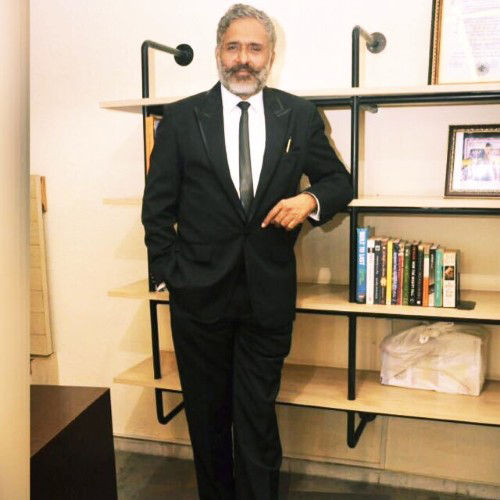



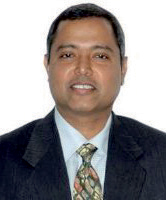

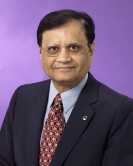



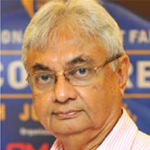
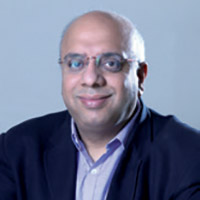
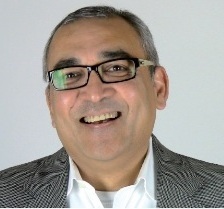
_8.JPG)
